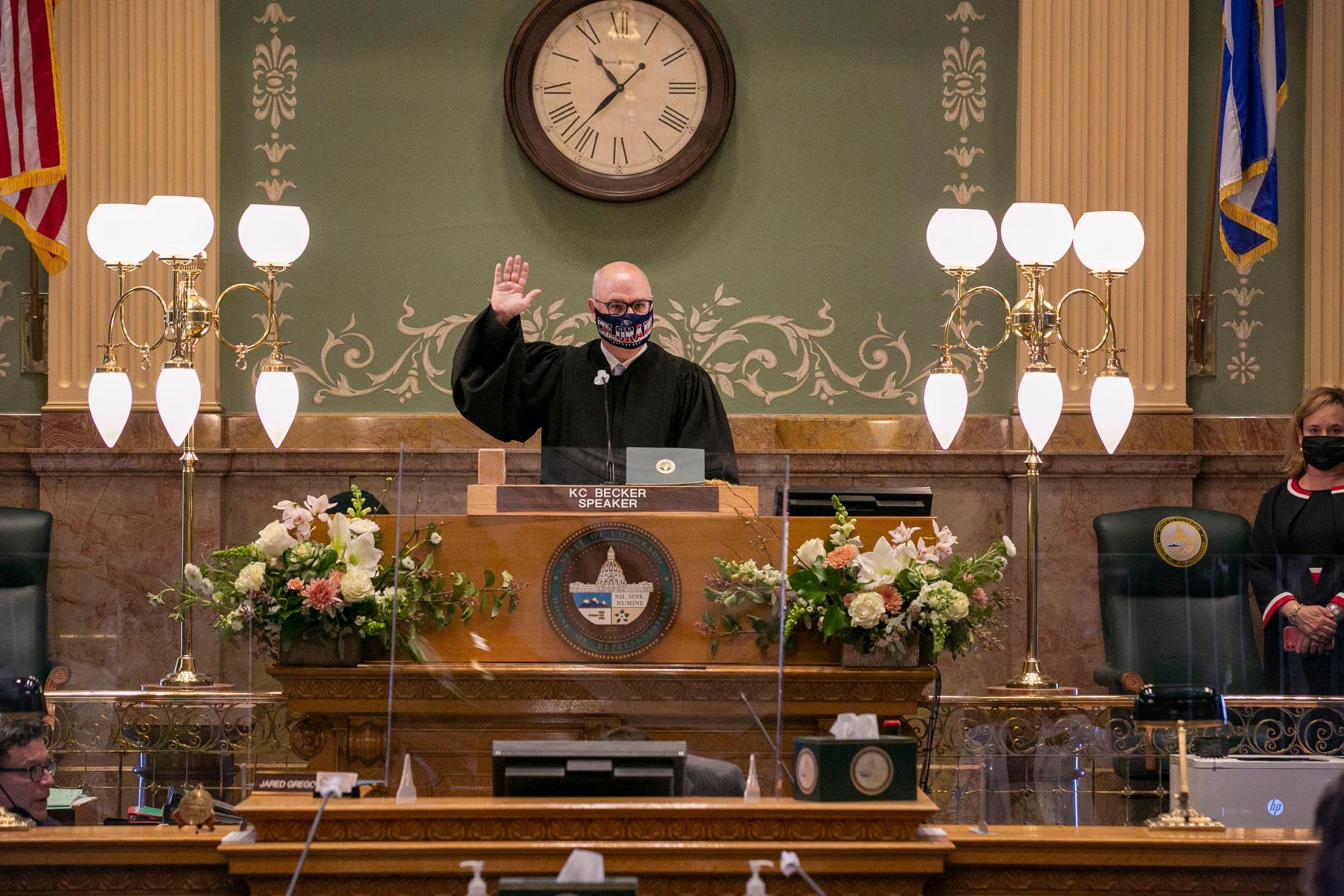
The Court
The Colorado Supreme Court is a seven-member, non-partisan body that handles appeals from the state’s district or municipal and county courts and the state’s court of appeals. Its members are first nominated by the Supreme Court Nominating Commission, a bi-partisan group of lawyers and non-lawyers chosen from each of the state’s Congressional districts. That group interviews applicants and forwards a list of nominees to the governor for vacancies on the court. The governor chooses one. Members of the court must then be retained by voters in elections for terms of 10 years on the court. Judges must retire by age 72.
The Majority
The 133-page unsigned opinion was endorsed by four associate justices. They found that Donald Trump should be disqualified from Colorado's primary ballot in the 2024 presidential election.
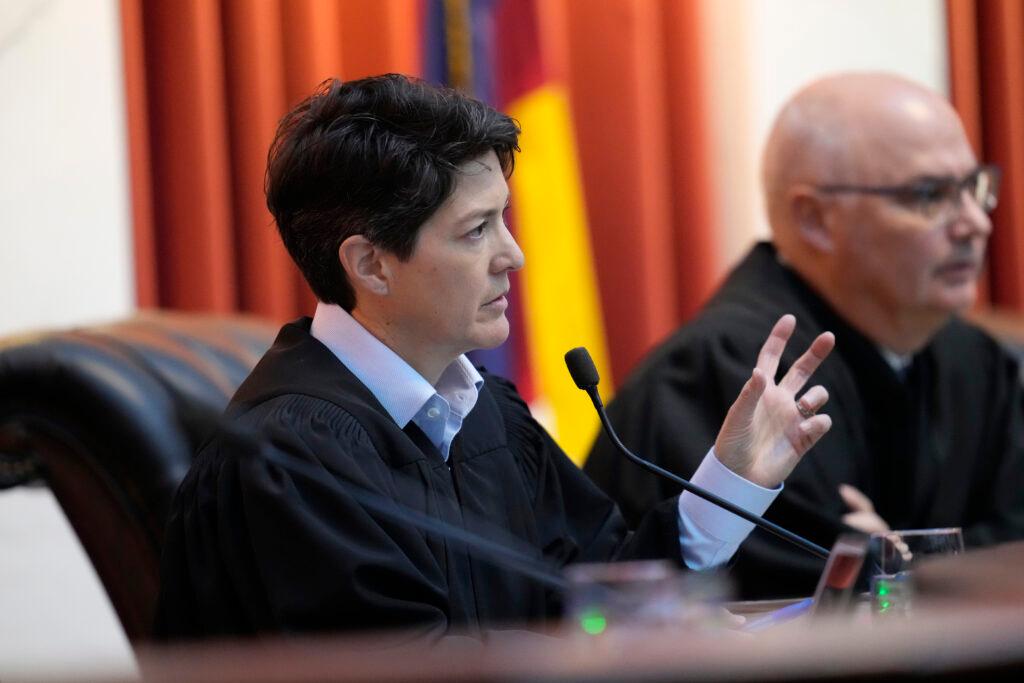
— Excerpt from the majority's unsigned decision“We do not reach these conclusions lightly. We are mindful of the magnitude and weight of the questions now before us. We are likewise mindful of our solemn duty to apply the law, without fear or favor, and without being swayed by public reaction to the decisions that the law mandates we reach.”
— Excerpt from the majority's unsigned decision“The sum of these parts is this: President Trump is disqualified from holding the office of President under Section Three; because he is disqualified, it would be a wrongful act under the Election Code for the Secretary to list him as a candidate on the presidential primary ballot.”
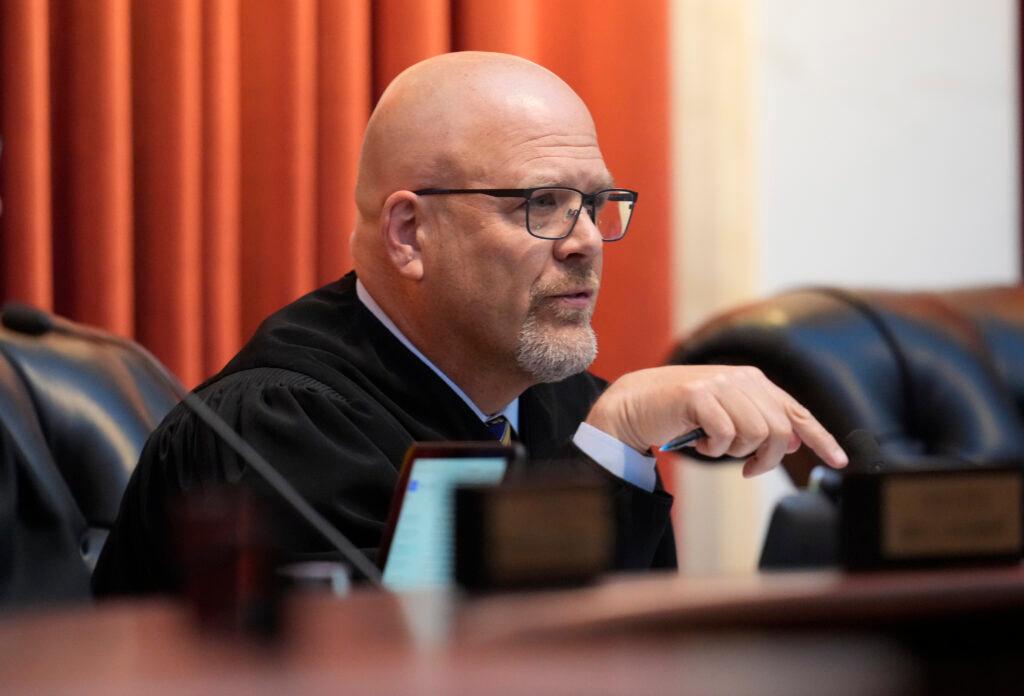
— Excerpt from the majority's unsigned decision“The end of the Civil War brought what one author has termed a “second founding” of the United States of America. See Eric Foner, The Second Founding: How the Civil War and Reconstruction Remade the Constitution (2019). Reconstruction ushered in the Fourteenth Amendment, which includes Section Three, a provision addressing what to do with those individuals who held positions of political power before the war, fought on the side of the Confederacy, and then sought to return to those positions. Section Three provides: No person shall be a Senator or Representative in Congress, or elector of President and Vice President, or hold any office, civil or military, under the United States, or under any State, who, having previously taken an oath, as a member of Congress, or as an officer of the United States, or as a member of any State legislature, or as an executive or judicial officer of any State, to support the Constitution of the United States, shall have engaged in insurrection or rebellion against the same, or given aid or comfort to the enemies thereof. But Congress may by a vote of two-thirds of each House, remove such disability. In interpreting a constitutional provision, our goal is to prevent the evasion of the provision’s legitimate operation and to effectuate the drafters’ intent.”
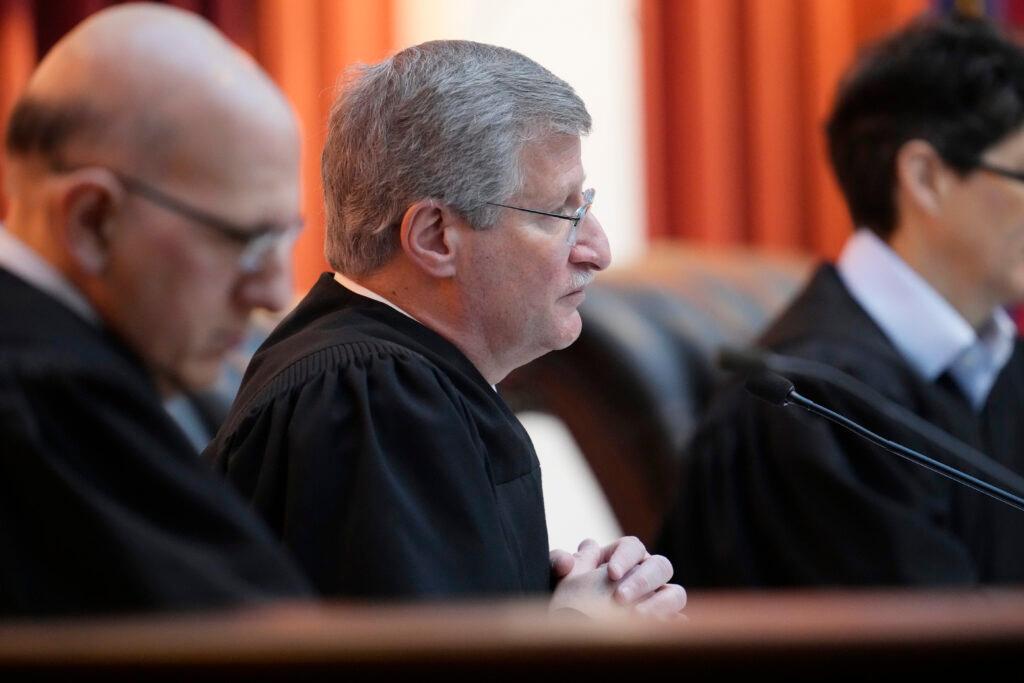
Excerpt from the majority's unsigned decision“Contrary to President Trump’s assertions, we perceive no constitutional provision that reflects a textually demonstrable commitment to Congress of the authority to assess presidential candidate qualifications. Conversely, the Constitution commits certain authority concerning presidential elections to the states and in no way precludes the states from exercising authority to assess the qualifications of presidential candidates.”
— Excerpt from the majority's unsigned decision“President Trump asks us to hold that Section Three disqualifies every oathbreaking insurrectionist except the most powerful one and that it bars oath-breakers from virtually every office, both state and federal, except the highest one in the land. Both results are inconsistent with the plain language and history of Section Three.”
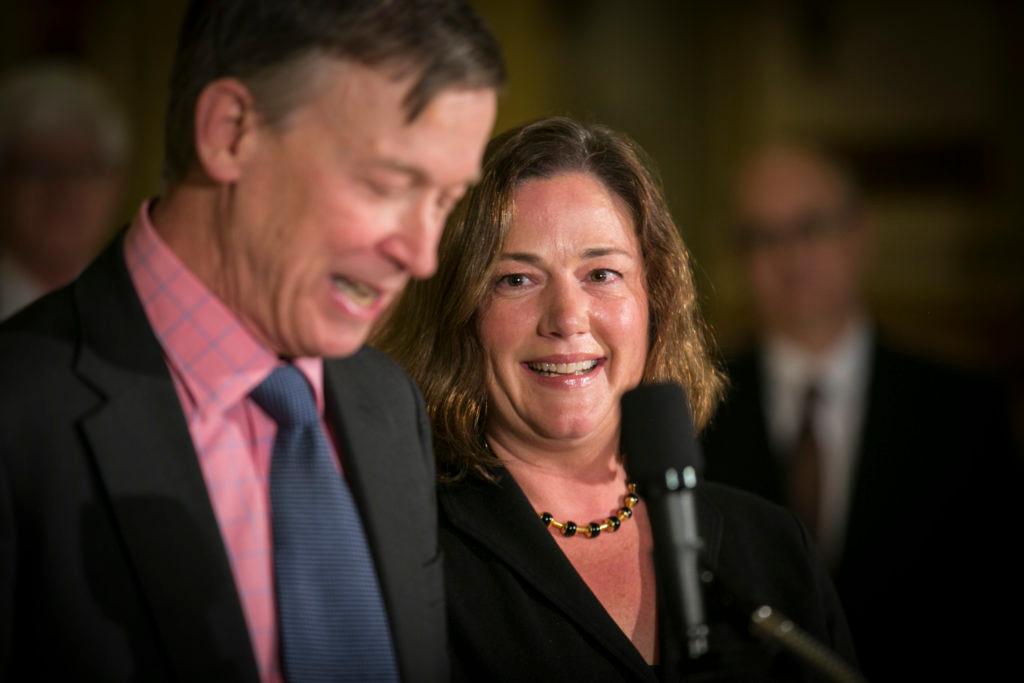
(Nathaniel Minor/CPR News)
University of Colorado Law School Professor Melissa Hart smiles as Gov. John Hickenlooper announces his appointment of Hart to the Colorado Supreme Court on Thursday, Dec. 14, 2017.
— Excerpt from the majority's unsigned decision“We conclude that the foregoing evidence, the great bulk of which was undisputed at trial, established that President Trump engaged in insurrection. President Trump’s direct and express efforts, over several months, exhorting his supporters to march to the Capitol to prevent what he falsely characterized as an alleged fraud on the people of this country were indisputably overt and voluntary. Moreover, the evidence amply showed that President Trump undertook all these actions to aid and further a common unlawful purpose that he himself conceived and set in motion: prevent Congress from certifying the 2020 presidential election and stop the peaceful transfer of power.”
The Dissent
Each of three dissenting justices, including Chief Justice Brian Boatwright, offered their own reasons for why they believe the majority is wrong.
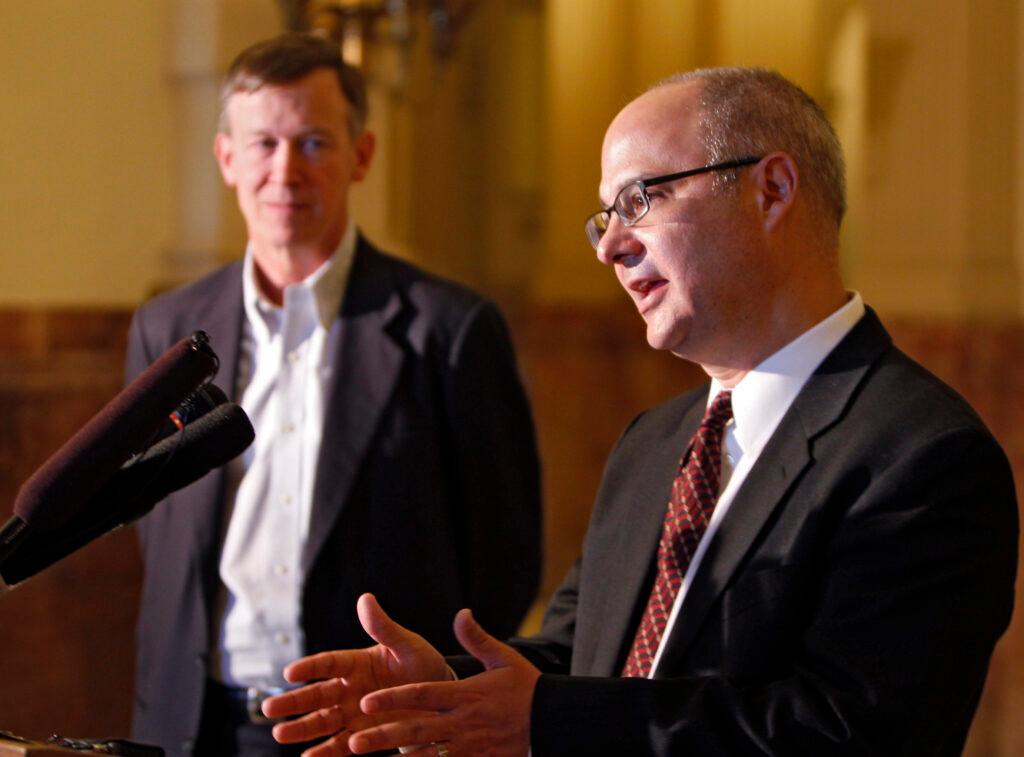
— Chief Justice Brian Boatright“Although a claim that a candidate is not thirty-five years old may be easier to resolve than a claim that a candidate is not a natural born citizen, these presidential qualifications are characteristically objective, discernible facts. Age, time previously served as president, and place of birth all parallel core qualification issues under Colorado’s election code. Conversely, all these questions pale in comparison to the complexity of an action to disqualify a candidate for engaging in insurrection.”
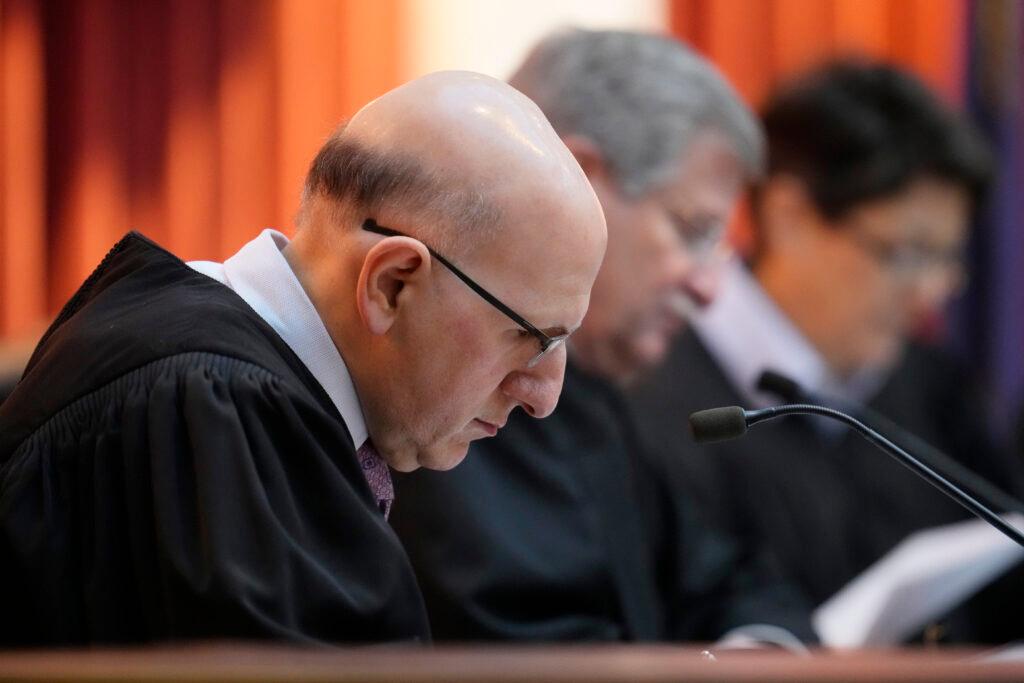
— Justice Carlos Samour Jr.“I cannot agree with the majority that the chimeric proceedings below gave President Trump process commensurate to the interest of which he has been deprived. Nor did the proceedings below protect the interest Coloradans have in voting for a candidate of their choosing. Of course, if President Trump committed a heinous act worthy of disqualification, he should be disqualified for the sake of protecting our hallowed democratic system, regardless of whether citizens may wish to vote for him in Colorado. But such a determination must follow the appropriate procedural avenues. Absent adequate due process, it is improper for our state to bar him from holding public office. More broadly, I am disturbed about the potential chaos wrought by an imprudent, unconstitutional, and standardless system in which each state gets to adjudicate Section Three disqualification cases on an ad hoc basis. Surely, this enlargement of state power is antithetical to the framers’ intent.”
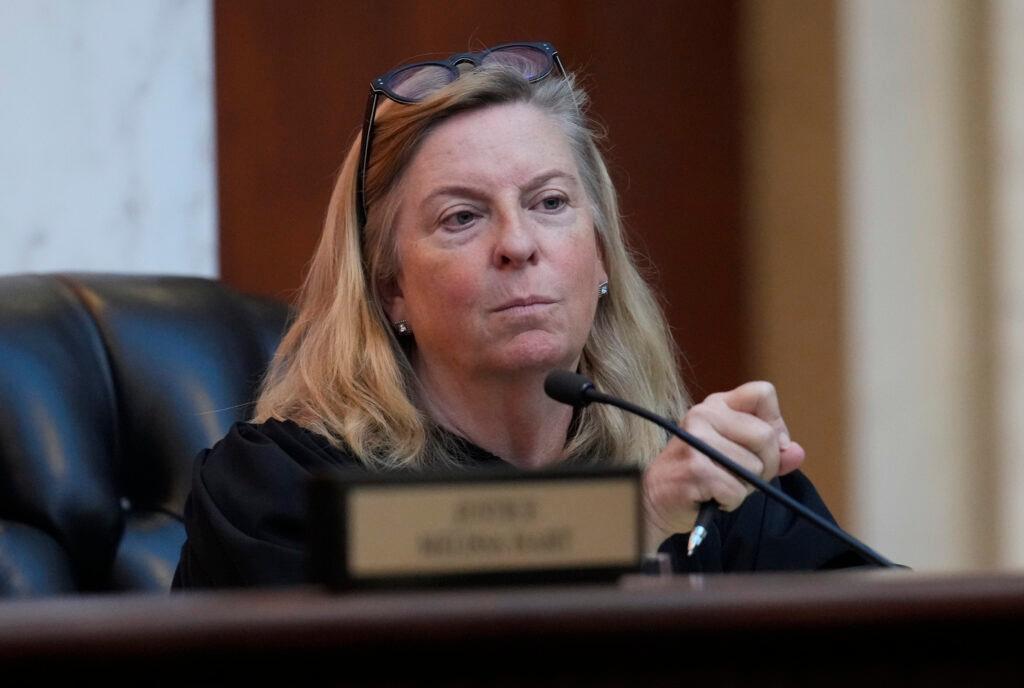
— Justice Maria E. Berkenkotter“Don’t get me wrong, the almost 450 entries in the district court register of actions in the two months and eleven days between September 6, 2023, the date on which the petition was filed, and November 17, 2023, the date on which the district court issued its 102-page final order, illustrate the extraordinary effort that the attorneys and the district court dedicated to this case. But that effort also proves too much. The deadlines under the statute were not met, nor could they have been. Setting aside the factual questions, an insurrection challenge is necessarily going to involve complex legal questions of the type that no district court—no matter how hard working—could resolve in a summary proceeding. And that’s to say nothing of the appellate deadline. Three days to appeal a district court’s order regarding a challenge to a candidate’s age? Sure. But a challenge to whether a former President engaged in insurrection by inciting a mob to breach the Capitol and prevent the peaceful transfer of power? I am not convinced this is what the General Assembly had in mind.”
Kevin Beaty of Denverite contributed to this report.
- Colorado Supreme Court disqualifies Trump from state’s 2024 primary ballot
- Republicans decry ruling disqualifying Trump from Colorado’s primary ballot
- The Colorado Supreme Court just ruled against Trump. Here’s what might happen next for voters
- Colorado voters weigh in on Trump ballot ruling as experts closely follow a rare legal journey
- ‘This case will test America’s commitment to its democracy,’ says former judge who crafted 14th Amendment challenge against Trump







